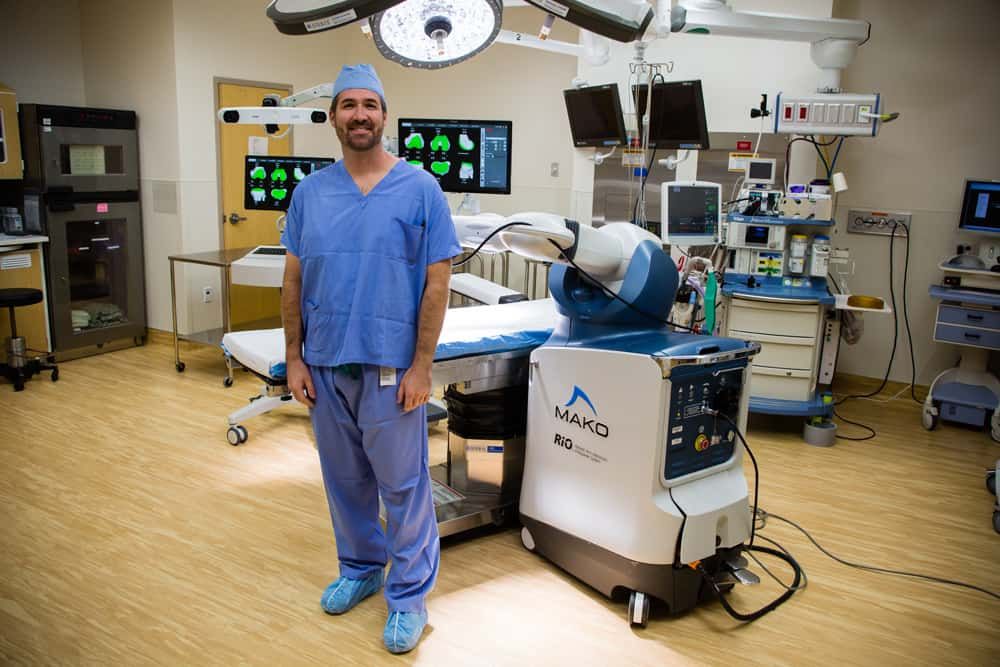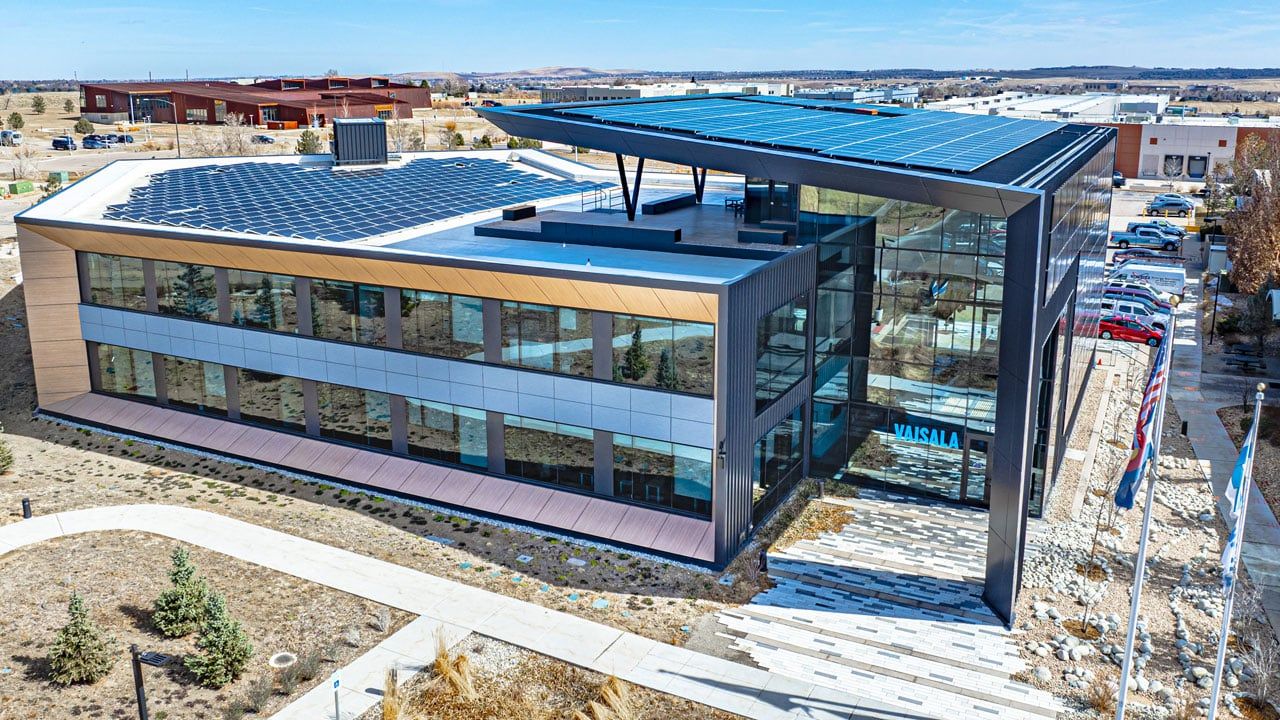Robot gives leg up on competition in knee surgery
Robot-assisted knee replacement a first in state, region

Robots in the surgical suite are nothing new, but robots assisting orthopedic surgeons on total knee replacements is groundbreaking. And Boulder Community Health’s Foothills Hospital is the first in Colorado and the only hospital in the Rocky Mountain region to offer Mako robot-assisted TKR.
“Boulder Community Health’s mission is to provide our community with the highest-quality health care in an innovative, patient-centered environment, and our addition of Mako technology is a great example of how we do that,” said Dr. Robert Vissers, BCH president and CEO. “Orthopedics is an area where innovative technologies and procedures have really expanded the number of treatment options available. We work closely with our physicians to review those options and make sure our patients have access to a full range of up-to-date treatments.”
BCH’s own robo doc couldn’t agree more. “For Boulder to be one of the first dozen sites performing this surgery is a pretty big deal. We’re on the cutting edge of technology,” said Dr. C. Brian Blackwood, an orthopedic surgeon with BoulderCentre for Orthopedics and the only surgeon doing robot-assisted TKR in Colorado and, in fact, in the Rocky Mountain region. The next-closest hospitals capable of the robotic-assisted procedure are in Phoenix and Minnesota, he added.
SPONSORED CONTENT
Commercial Solar is a big investment, but not an overwhelming one
Solar offers a significant economic benefit for commercial property owners while also positively impacting the environment and offering a path to compliance for new municipal requirements like Energize Denver. A local, experienced solar installer will help you navigate the complexities of commercial solar to achieve financial success for your project.
It’s not by coincidence that the arrival of the million-dollar robot at Foothills aligns with the arrival of Blackwood 3½ years ago. Blackwood is a fellowship-trained hip- and knee-replacement specialist who, as part of his fellowship, spent time at Mako Surgical Corp.’s Fort Lauderdale, Fla., plant learning how to use the robot. Stryker took over the medical device company in 2013.
BCH first used the Mako robot-assisted technology for hip and partial knee replacements. The first robotic-assisted TKR took place Nov. 2, and Blackwood said the patient is well on the way to recovery. Typical patients are up and walking the same day and are discharged home the next. Sixty percent are recovered at six weeks and 90 percent in 90 or so days.
The minimally invasive procedure works like this: The patient first has a CT scan of the joint to generate a 3-D virtual model that is then loaded into the Mako System software, creating a personalized pre-operative plan. When the surgeon prepares the bone for the implant, the robotic arm guides the surgeon within the predefined area and helps prevent the surgeon from moving outside the planned boundaries. An implant is then secured over the prepared portion of the knee joint. The result? Bye-bye pain, hello natural knee movement.
Ninety percent of patients needing total knee replacement are candidates for the robot-assisted procedure, Blackwood said. And the numbers of people needing knee surgery — partial and total — continue to increase. In 2010, more than 650,000 people underwent knee replacement, with 90 percent of those requiring total knee replacement, according to National Center for Health Statistics.
Osteoarthritis is the primary reason patients undergo partial or total knee replacement, but Blackwood said he’s seeing an increasing number of people who overload their joints as a result of excess weight.
Surgery, however, is not always the first plan of action. First steps toward pain relief usually include medications, joint-fluid rejuvenation, physical therapy and bracing.
However, Blackwood said 90 percent of patients requiring TKR are candidates for the robotic-assisted procedure, with the potential for that going to 100 percent. “I just don’t know if more-complex patients would benefit,” he said of the minimally invasive procedure.
To help get the word out about options to relieve knee pain, Blackwood has been speaking at a number of BCH-sponsored informational meetings. “Some people may not even know what knee replacement is,” he said. “They think you cut in solid bone and throw in giant metal components. I also talk about what surgery looks like, pain management and ways to avoid knee injuries.”
Robots in the surgical suite are nothing new, but robots assisting orthopedic surgeons on total knee replacements is groundbreaking. And Boulder Community Health’s Foothills Hospital is the first in Colorado and the only hospital in the Rocky Mountain region to offer Mako robot-assisted TKR.
“Boulder Community Health’s mission is to provide our community with the highest-quality health care in an innovative, patient-centered environment, and our addition of Mako technology is a great example of how we do that,” said Dr. Robert Vissers, BCH president and CEO. “Orthopedics is an area where innovative technologies and procedures have…
THIS ARTICLE IS FOR SUBSCRIBERS ONLY
Continue reading for less than $3 per week!
Get a month of award-winning local business news, trends and insights
Access award-winning content today!

